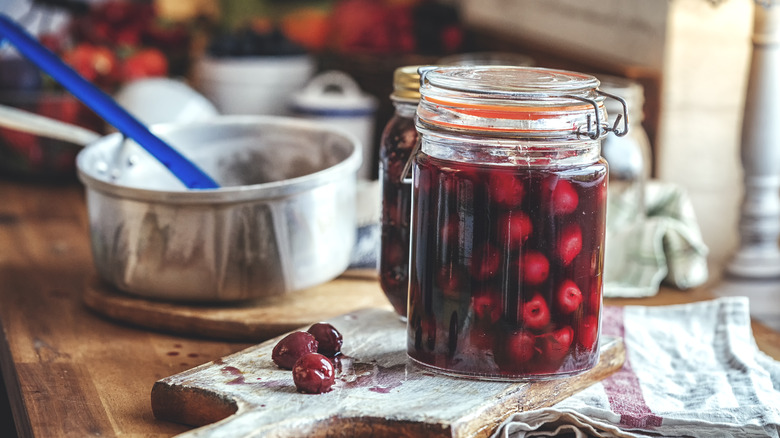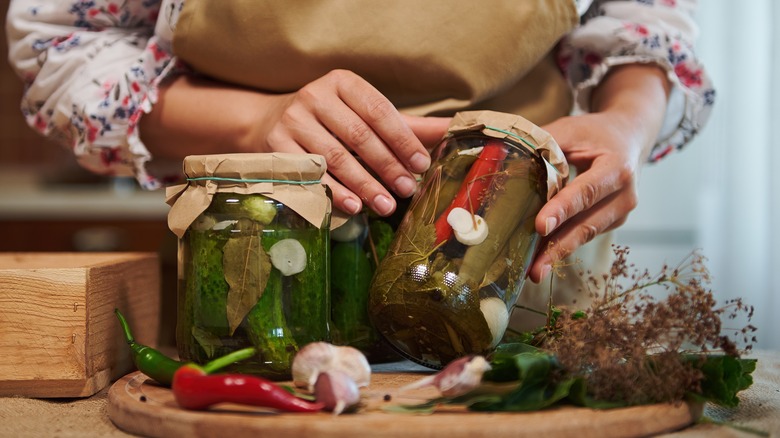Rebel Canning Challenges Everything You Know About Home-Canned Food
Originally devised as a solution for feeding malnourished troops during wartime, canning has long been used as a method for preserving foods. The process, which involves sealing foodstuffs in an airtight can or jar before subjecting it to heat, was designed to keep the bacteria that causes food spoilage at bay. And for over 150 years following its invention, both home canning and commercial canning was largely unregulated.
It wasn't until improperly canned foods contributed to a rise in cases of botulism in the 1970s that the Food and Drug Administration (FDA) stepped in, putting regulations on the canning process. Per the FDA, many foods were no longer considered safe to consume unless they were canned using a method called pressure canning, which involves placing the cans in a pressure cooker. Since then, the home-canning community has been divided into two distinct camps: Those who follow the rules, and those who don't.
The latter group, often referred to as "rebel canners," employ more traditional methods of canning: There's open kettle canning, which involves heating food on the stove and pouring it into jars while it's still hot; there's also water bathing, where sealed jars of food are placed in boiling water for an extended period of time. For so-called rebel canners, the feelings of empowerment that come with the ability to feed oneself on one's own terms outweigh the potential risks. And with many home-canners learning the craft from family members who canned for years without issue, many have adopted an "If it ain't broke, don't fix it" attitude.
Picking sides
Surviving in today's society requires a certain amount of picking sides. Oftentimes we choose a side with our vote or with our money, but for the home-canning community, the faction to which you belong depends on your regard for federal regulations.
If you're not into canning food at home, you may be unaware of the contention that has been building between the home canners who strictly follow the FDA's canning guidelines and those who prefer to do their own thing — risks be damned. However, there are very distinct lines drawn in the sand. Home-canners who employ the more scientific method of canning supported by the FDA find rebel canners downright irresponsible. So irresponsible, in fact, that many rebel canners have reported being bullied online by scientific home-canners who don't agree with their practices.
Still, rebel canners remain steadfast in their belief that what they do in their kitchen is their business. And with over 150 years of evidence that canning foods without a pressure cooker can be done safely (in theory) rebel canners are confident that they can keep harmful bacteria out of their canned goods by adhering to their own guidelines regarding sanitation and using their own sense. And if they're ever wrong, well ... good luck to the digestive organs of anyone who consumes what they've canned.

